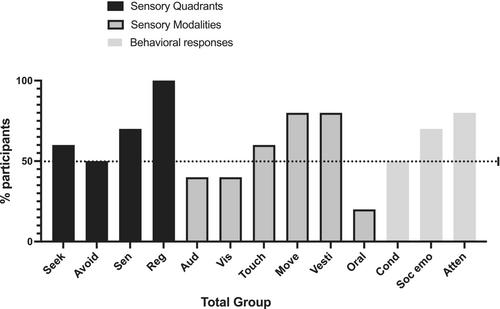SYNGAP1- related intellectual disability (SYNGAP1-ID) is a rare genetic disorder presenting with intellectual disability (ID), epilepsy, maladaptive behaviours and communication challenges. To date, few studies have assessed the context in which these maladaptive behaviours occur. This study aims to investigate the prevalence of problem behaviours, characterise the behavioural phenotype and use well-validated measures to explore variables that maintain the behaviours.
Our sample includes 19 individuals diagnosed with SYNGAP1-ID and their parents. Parents provided information on behaviours that their children engage in, as well as their general behavioural dispositions. Well-validated measures (e.g., the Repetitive Behaviour Scale-Revised, Sensory Profile-2 and Vineland Adaptive Behaviour Scale) were used. A subset of individuals underwent further direct experimental assessment of their problem behaviour to identify the variables maintaining those problem behaviours. Parental reports were analysed using nonparametric statistical analysis; the direct assessments of individuals' problem behaviour were analysed using visual analysis and validated supplemental measures.
All 19 individuals engaged in some form of maladaptive problem behaviour. Ratings of ritualistic, sameness and restricted behaviours measured by the RBS-R were commensurate with individuals diagnosed with idiopathic autism spectrum disorder (ASD) while self-injurious behaviours were endorsed at a higher level in SYNGAP1-ID when compared with idiopathic ASD. The problem behaviours in our cohort of patients with SYNGAP1-ID were maintained by automatic reinforcement and social attention and are positively correlated with atypical sensory responses.
Individuals with SYNGAP1-ID engage in problem behaviours commensurate with other populations (e.g., those with ASD), they exhibit atypical response to sensory stimuli. Problem behaviours were frequently maintained by automatic reinforcement, which may result from a dysregulated sensory system. Children with SYNGAP1-ID may benefit from strategies used in persons with ASD.


